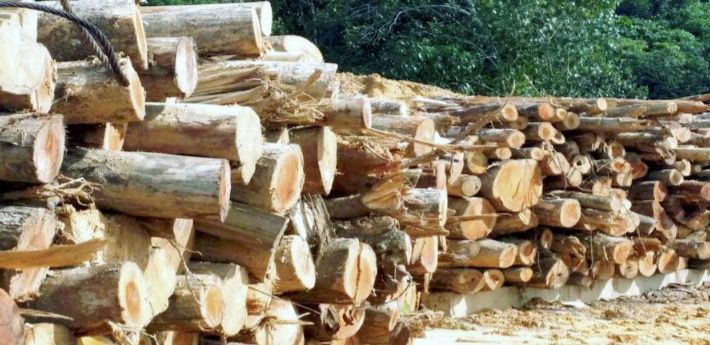By, Hisyamuddin Mat Sani
Malaysia’s environment and rich biodiversity is seriously threatened by illegal logging. Unauthorized tree-cutting for timber and other commercial uses, frequently in protected or restricted areas, is the practice. Numerous plant and animal species are now at risk due to habitat loss and deforestation brought on by this widespread activity. SDG 15: Life on Land is the Sustainable Development Goal (SDG) that has to do with illicit logging. Protecting, restoring, and encouraging the sustainable use of terrestrial ecosystems—including forests—is the goal of SDG 15. Additionally, the logging operations exacerbate environmental degradation by contributing to air pollution, soil erosion, and interrupted water supplies. Corruption, lax law enforcement, and the strong demand for timber are some of the reasons why illegal logging continues to occur in Malaysia, despite the government’s efforts to curb it with stronger laws and enforcement. Because forests are essential for sequestering carbon, solving this issue is critical for both the stability of the global climate and Malaysia’s natural ecosystems. In order to stop illicit logging and support conservation initiatives in Malaysia, sustainable forest management and international cooperation are crucial.
Impact of Illegal Logging
In Malaysia, illegal logging has had a major effect on the economy, society, and environment. The delicate ecological balance has been upset by the loss of valuable and biodiverse forests, which has resulted in habitat destruction and the endangerment of many plant and animal species. Additionally, by decreasing the amount of carbon dioxide that trees absorb, illegal logging-induced deforestation exacerbates global warming and its related effects. The widespread expansion on Malaysia’s tropical rainforests, including the well-known Taman Negara National Park, is one of the most prominent instances of illegal logging in the country. Furthermore, the Malaysian government has suffered financial losses and extensive environmental damage as a result of the illicit logging of valuable timber species like kempas, meranti, and merbau. In 2022, there were 90 cases of illegal logging reported nationwide, with Sarawak reporting the most cases (60). Furthermore, there were 11 cases reported in Perak, 10 in Kelantan, 4 in Sabah, 2 in Selangor, and 1 in Johor, Negeri Sembilan, and Pahang.
How to Overcome Illicit Logging
It is essential to strengthen legal and governance frameworks. This entails putting in place and upholding stringent environmental regulations, punishments, and monitoring systems like satellite technology to identify illicit activity. In a significant move to address the issue of illegal logging, the Ministry of Energy and Natural Resources (KETSA) through the Department of Forestry Peninsular Malaysia (JPSM) has implemented amendments to Act 313. Among the key issues emphasized in the amendment of Act 313 is the combatting of illegal logging activities by increasing the maximum penalty to 10 times the current amount, from RM500,000 to RM5 million. Additionally, the maximum prison sentence has been raised from seven to 20 years.
In addition, the deformation of forests can be lessened by promoting sustainable logging, forest management, and agricultural methods. Crop rotation, reforestation initiatives, and selective logging are some of these methods. Programs for reforestation are essential to the preservation and regeneration of forests. In these programs, trees are planted in degraded or deforested areas. Reforestation lessens soil erosion, restores ecosystem balance, and gives wildlife habitat. Selective logging is a tree-harvesting technique that aims to remove particular trees while maintaining the forest’s general health and structure. To reduce harm to the surrounding ecosystem, this strategy entails thorough planning and evaluation.***
- Double Win: Best Paper and Best Presenter Awards at ICoGESD 2025 - December 3, 2025
- AHAS KIRKHS ‘Ibādah Camp 2025: Empowering the Role of Murabbi for a Resilient Ummatic Future - December 1, 2025
- GALEP 2.0 – Fostering Global Academic Leadership - November 27, 2025
